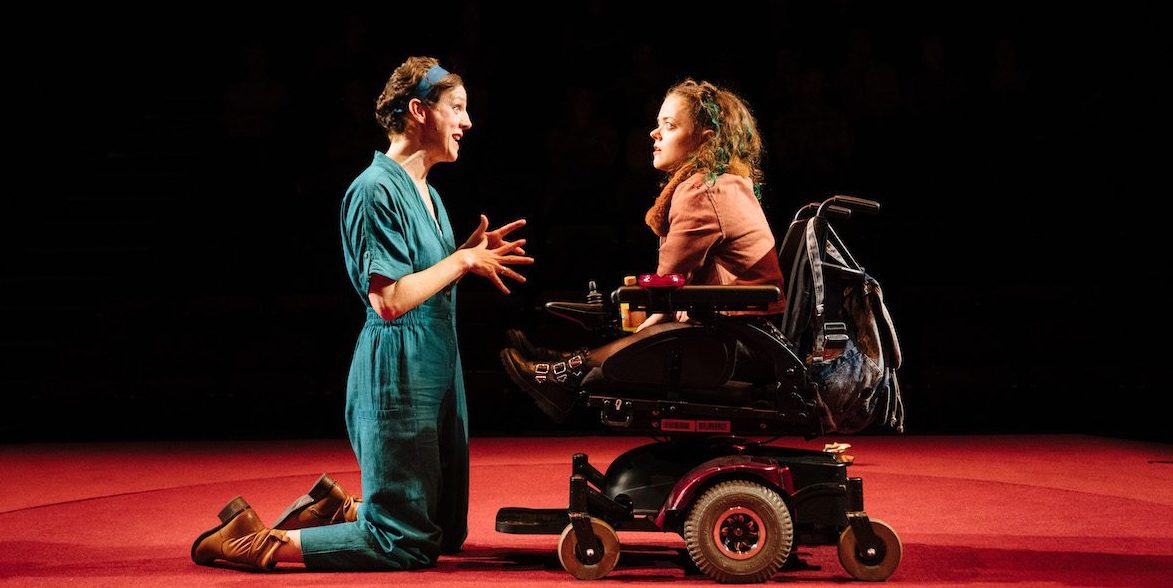Francesca Martinez’s debut play is full of righteous and well-earned anger that will leave all but those of the stoniest disposition alarmed, enraged, and emotional. Our benefits system has never been fit for purpose – but a decade of austerity and savings-driven, so-called reform has made the lives of those on the sharp end of needing to rely on state-run services at best diminished and at worst catastrophically bad.
This might be seen by some as a subjective, political view, but it is one widely shared not only by service users but by countless studies on the impact of changes done by academics, civil society, parliament, and sometimes even government impact assessments themselves. It may be political – but it is also pretty incontrovertible.
It is demonstrated in a huge variety of ways on stage at the National Theatre in All of Us, with a range of physical and mental health conditions represented. Martinez herself has Cerebral Palsy – or is Wobbly as her character Jess prefers to term it.
All of Us is sometimes better written than it is scripted. By which I mean much of the individual dialogue sings but the whole is less coherent as a story. It could have done with more editing and someone to be a little more brutal about what moved on the story and what just reiterated the piece’s politics. For example, the public meeting at the start of the second half was overly long and at times lapsed into speechifying and stereotypes that detracted from an otherwise powerful piece.
Martinez’s Jess is portrayed charmingly. Her background as a stand-up is obvious as it is when Jess is telling jokes that her acting really shines. However, she is at times both too much of a happy martyr and also very quick to compromise her professional ethics (she is a therapist who has an extremely inappropriate relationship with a client – something that goes unremarked on).
The standout performance for me was Francesa Mill’s Poppy. Poppy is a young libertine hellion who also happens to be a wheelchair user with restricted growth. She is equal parts anger and vivaciousness and seeing her crushed by the system is the most powerful storyline in the play.
All of us is an engaging and energetic crie de cour that exemplifies much of the best of the current ‘nothing about us without us’ sensibility. This was a piece that could only ever have been made by and with actors with disabilities and as such is powerful in its unflinching honesty. Where it occasionally falls down is in not always channelling the justified primal rage into just as powerful a narrative. Too often there was a temptation to shout and tell rather than a show which ironically distracted from the power of those moments in what was still an overall extremely powerful piece.

